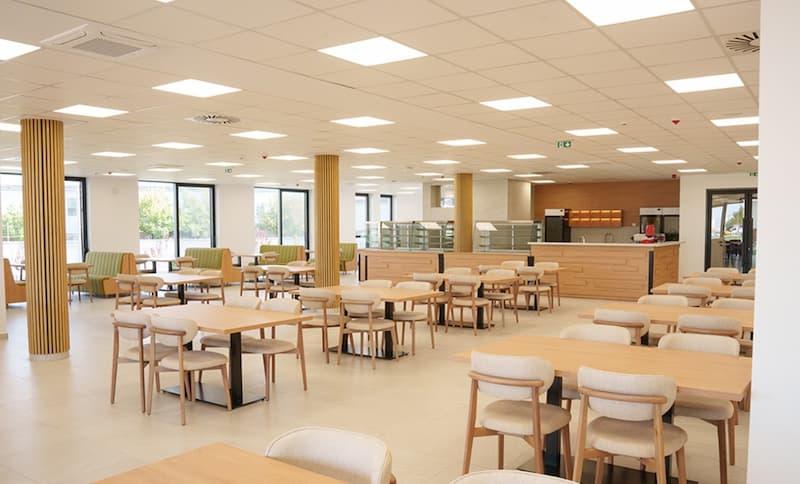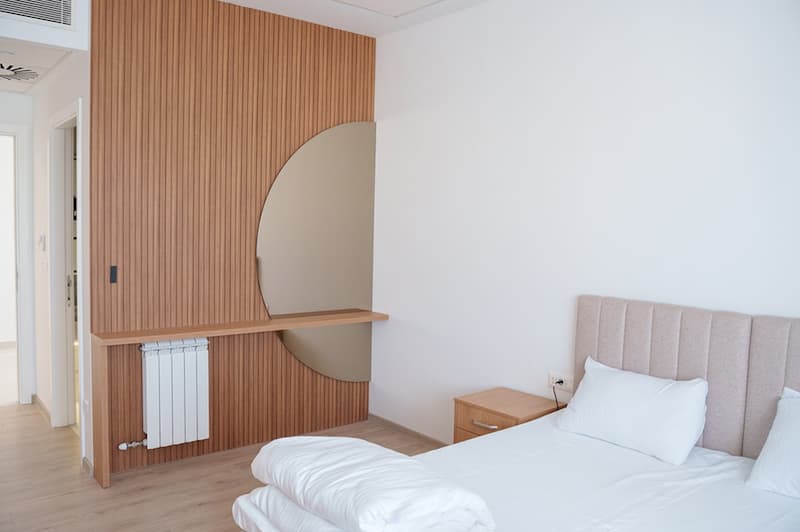Stem cell therapy for autism spectrum disorder is emerging as a promising option for families exploring different treatment paths. Imagine a child becoming more at ease with eye contact, more engaged in conversation, or better able to handle sensory triggers—just some of the possibilities reported by families. For those seeking alternatives to conventional therapies, stem cells are not a cure for autism but an additional option to consider in the journey toward a fuller, more connected life.
What is Autism?
The complex neurodevelopmental condition known as autism, or autism spectrum disorder (ASD), influences a person’s ability to communicate and interact socially and often includes repetitive behaviors. Generally, symptoms of autism appear within the early years of a child’s life, mostly before the age of three, and may last a lifetime. Given that it’s a spectrum, a child may have different capabilities and needs for support.
What Are the Symptoms of Autism?
Autism varies widely in how it presents, with some individuals experiencing significant challenges, while others may have average or even above-average abilities. For example, some people on the spectrum excel in areas requiring strong reasoning skills, like math or art, yet still face difficulties in social interactions:
- A person with autism might have difficulty in both verbal and non-verbal communications. This typically includes an inability to understand social and facial cues, an inability to maintain eye contact, or engaging in typical give-and-take conversations.
- Many people on the autism spectrum have restrictive or repetitive patterns of behavior or interests. This can range from repeating certain phrases, following strict routines, or having strong interest in detailed parts of topics.
- People with autism often exhibit both hyper- and hypo- sensitivity to all different kinds of sensory inputs, such as sounds, lights, and textures. Such issues render their usual environment uncomfortable to stay in.

What Are the Causes of Autism?
A combination of both genetic and environmental factors influences ASD.
Genetic Factors
- Studies claim that 40 percent to 80 percent of the risk for developing ASD can be attributed to genes.
- Autism is associated with some specific genetic disorders, including Rett syndrome. It is a neurodevelopmental disorder, mostly in girls, that involves mutations of the MECP2 gene. Symptoms usually become apparent during the ages of 6 and 24 months. Key features often include a loss of hand skills, repetitive movements, and delays in language and motor skill development.
Environmental Factors
- Advanced parental age, maternal obesity, diabetes, immune disorders, and even the presence of environmental toxins during pregnancy might contribute to the risk of autism.
- Extremely low birth weight and birth complications increase the risk for ASD even more.
What Are the Types of Autism Spectrum Disorder?
Autism spectrum disorder is a general term for a group of complex neurodevelopmental disorders that affect communication, behavior, and social interaction in different ways.
Asperger Syndrome
Individuals with Asperger’s may focus on specific interests to an extreme extent, possibly with restricted, repetitive patterns of behavior, with no significant delays in cognitive functioning.
Childhood Disintegrative Disorder
Also known by the name Heller’s syndrome, CDD is a very rare disorder characterized by normal development during the first couple of years of life then a complete loss of skills in linguistic, social, and motor functioning. It is now classified under the broader Autism Spectrum Disorder (ASD) umbrella, though it was once considered a separate diagnosis.
Atypical Autism
Atypical autism is diagnosed in two cases: when some key symptoms are missing or when symptoms start appearing at a later age than usual. The individuals affected by atypical autism often have issues with social interaction and communication, with usually less intensity and in unique combinations.
What Is Stem Cell Therapy, and How Does It Relate to Autism?
Stem cell therapy is a type of treatment that harnesses the body’s cells to support healing and regeneration in various ways. Stem cell therapy for autism may help improve some symptoms like self-harming behavior, hyperactivity, and poor sleep patterns.
Stem Cells and Their Potential
Stem cells are unique, unspecialized cells capable of self-renewal. Their possible uses range widely, from supporting regeneration to treating different conditions and injuries of various etiologies.
- Application of stem cell transplants for autism helps modulate immune responses via the induction of anti-inflammatory conditions and suppression of overactive immune responses.
- Stem cells for autism promote the reduction in the oxidative stress of tissues and, therefore, contribute to the optimization of a healthier microenvironment.
- MSC can induce synapse formation and enhance synaptic function with consequent improvement of ASD-like symptoms.
Types of Stem Cell Therapy for Autism
Commonly used stem cells for autism include umbilical cord- and placenta-derived mesenchymal stem cells. These cells are favored due to their safety profile and the lack of invasive procedures required for their collection.
At Swiss Medica, a prominent name among stem cell therapy for autism clinics, we use the following stem cell types:
- Allogeneic mesenchymal cells from the placenta and umbilical cord (from the donor);
- Exosomes (small vesicles released from cells);
- Macrophages (a type of white blood cell).
Types of Stem Cells Used in Autism Treatment
Several kinds of stem cells are used for stem cell therapy for autism spectrum disorder; this is because they have been shown to possess immune-modulating capabilities and promote neurohealing.
Mesenchymal stem cells (MSCs) from umbilical cord and placenta
These cells are derived from tissues such as the umbilical cord and placenta. MSCs have anti-inflammatory and immunomodulatory properties. Stem cell therapy for ASD using MSCs can support the repair of damaged tissues; this, in turn, can help diminish some manifestations of autism.
Umbilical cord stem cell treatment for autism shows promise in reducing neural inflammation and improving brain connectivity. This may lead to enhanced social functioning and better communication skills in children with autism.
Exosomes
There are small vesicles released by cells, carrying proteins, lipids, and RNAs to facilitate communication and regulate biological processes. Derived from mesenchymal stem cells, known for their regenerative properties, exosomes can deliver therapeutic molecules to damaged tissues, promoting healing and regeneration. This makes them a promising tool in targeted therapies.
Want to know how exosomes can make a difference in your treatment? Visit our article for more details.
Read nowMacrophages
While not stem cells, macrophages—specialized immune cells—play a supportive role in reducing inflammation and promoting tissue repair. In children with autism, macrophages may help create a more balanced environment in the brain by clearing cellular debris and reducing inflammation. This supportive effect can potentially improve neurological function, enhancing areas like communication and sensory processing.
Macrophages are also an integral part of Swiss Medica’s innovative approach to treating autism.
Key Benefits of Stem Cell Therapy for Autism
Studies are exploring how stem cell therapy for ASD may support individuals with autism to improve areas such as social skills, communication, and sensory regulation.
Increased Communication Skills
Stem cell treatment for autism has been linked with significant improvements in social functioning and effective communication. In treatment, children have been observed to pay more attention to social cues, which may indicate improved focus and possibly enhanced articulation skills over time.
Elimination of Behavioral Problems
Stereotypic behaviors and overall behavioral problems decrease for many patients, making daily functioning easier. After stem cell transplants for autism, tantrums reduce and overall behavior improves. These changes lead to a better quality of life for both the patient and their family.
Improved Focus and Cognitive Abilities
Following treatment with stem cells for autism, brain connectivity and nutrient absorption improve. These changes are linked to better cognitive performance, helping individuals with autism retain information more effectively.
Some people may see stem cells as a cure for autism, but in reality, they offer supportive benefits rather than a definitive cure.
Who Can Benefit from Stem Cell Therapy?
Children aged 3 to 7 or up to 10 years with ASD tend to benefit the most from stem cell transplants for autism, but that’s not all.
- Individuals with other health conditions, such as gastrointestinal disturbances or sleep disorders.
- Stem cell treatment for autism provides new hope for those who have shown little or no improvement with conventional therapies.
Best Clinic for Stem Cell Therapy for Autism
The best clinics aren’t always nearby, so it’s worth exploring a broader range of options. Choosing based on a clinic’s experience and other key factors can open up possibilities for top-quality care.
Swiss Medica offers a cozy and friendly environment designed to help children with ASD feel safe and at ease during their treatment.
Swiss Medica clinic in Serbia is committed to helping patients with autism by providing advanced care and support. So it may be the right answer when searching for ‘stem cell therapy autism near me’.
- Our in-house lab provides fresh stem cells of the highest standards, controlled at every production step for purity and safety. Furthermore, you can be assured that Swiss Medica does not use unethical fetal stem cell treatments for autism.
- You can connect with our doctors online for a no-obligation consultation to discuss your child’s unique needs and treatment goals before starting care.
- Your treatment package includes everything necessary for the best results: pre-treatment preparation, the main therapy, comfortable accommodation, and exosomes for post-treatment recovery—all at one inclusive price.
- Children and their parents stay in a child-friendly, inclusive atmosphere where they can feel safe and welcome.
- Our menus are customized to suit the preferences of children and other guests.
- Our empathetic doctors and nurses are experienced in treating autism. They make sure procedures are carried out in a calm and comfortable manner for your child.
- Due to low patient-to-doctor ratios, often only 3–4 patients per doctor, we guarantee that every child receives attentive and dedicated care, even on the busiest days.
- Our clinic is conveniently located in Serbia, making it easy for international patients to reach. There’s no need to search for ‘stem cell therapy for autism near me’—we’re accessible and ready to provide quality care.
Find out what sets us apart—get to know Swiss Medica better.
More about Swiss MedicaSuccess Rates at Swiss Medica in Stem Cell Therapy for Autism
At Swiss Medica, the use of stem cells for autism treatment has demonstrated an 80% success rate. Follow this link to see the results of our internal research.
Children often experience meaningful improvements, ranging from subtle shifts to significant changes:
- Better verbal and non-verbal communication;
- Increased interaction with peers and family;
- Improved sleep patterns;
- Reduced behavioral challenges of aggression and hyperactivity;
- Enhanced focus;
- Digestive improvements.
Get a free online consultation
Interested in learning more about stem cell treatment for autism? Take the next step by filling out the form for a free online consultation. Our specialists will provide insights into how stem cell therapy may support your child’s development.

Medical Advisor, Swiss Medica doctor
Real Success Stories: Stem Cell Therapy for Kids with Autism
“One of the biggest improvements is that he can now sit quietly and do his work. Before, he couldn’t sit still even for a few seconds; he’d always run around. But now he can sit calmly and be focused for as long as half an hour.”
A young patient returned for a second round of stem cell therapy at Swiss Medica. At 18 months, he showed early signs of developmental delay, including difficulty following instructions, lack of eye contact, and speech issues.
Following his first treatment, he demonstrated significant improvements, such as:
- making choices,
- maintaining better eye contact,
- staying still during activities.
His parents are optimistic about further progress with this second round of treatment.
Stem Cells for Autism Treatment: Risks and Considerations for Families
Common adverse effects of stem cell treatment for autism include fever, headache, chills, a rash, or mild swelling and redness at the injection site. Less often, some patients experience a temporary increase in activity after receiving therapy. Most of these effects are temporary and can be managed with simple rest or pain relief, while others will resolve on their own shortly afterward.
Swiss Medica does not apply fetal stem cell therapy due to enhanced risks of immune response and ethical concerns. Instead, we use mesenchymal stem cells (MSCs). MSCs are recognized for their genomic stability and limited ability to self-renew and proliferate. This ensures they do not divide or transform uncontrollably, unlike cancer cells.
Additionally, before being used in treatments, we perform comprehensive testing of MSCs to ensure their purity, viability, and sterility, as well as screen for genetic mutations that could potentially cause cancer.
Costs and Accessibility of Stem Cell Therapies for Autism
The current estimated cost is between $5000 and $50000, depending on the country and stem cell therapy for autism clinics. Swiss Medica provides a cost range between €7,000 and €19,000*, depending on the treatment plan and any additional procedures.
Key factors that can influence stem cell therapy for autism cost include:
- Number and type of the stem cells to treat autism
- Number of treatments
- Other extra services that may include laboratory tests, medications, and follow-up check-ups, increasing the cost of stem cell therapy for autism.
Swiss Medica offers a cover-it-all package that makes stem cell therapy for autism cost more comprehensive. It includes not only the treatment but also pre-treatment check-ups, follow-up care, accommodation, meals, and translation services—all covered by the estimated price.
*The prices mentioned are indicative and subject to change based on individual factors, including the condition’s severity and the number of stem cells needed. Prices are valid as of January 2025.
Can I find stem cell therapy for autism near me?
Due to regulatory restrictions, stem cell therapy for autism is primarily available at specialized clinics, which are often located outside the US. Countries like Serbia offer more affordable treatment options compared to Western Europe or the United States, without compromising on quality.
Alternative Treatments to Supplement Stem Cell Therapy
Behavioral Therapy and Applied Behavioral Analysis
ABA therapy uses methods like rewards and consequences to modify behavior. Early intervention programs using ABA can produce improvements in social interaction, communication, and behavior of autistic children.
Dietary Changes and Supplements
Children with autism often experience food aversions and selective eating, making it crucial to ensure they receive adequate nutrition.
- Some supplements that may have benefits for mitigating symptoms associated with ASD include omega-3s, vitamin B6, vitamin D, and probiotics.
- Many families report modest success with GFCF diets that eliminate gluten and casein..
Supplementary Therapies at Swiss Medica
Swiss Medica offers additional therapies that enhance the effect of stem cell treatment. This includes
- occupational therapy that improves cognitive development and helps children become more independent in completing daily tasks;
- speech therapy that helps manage communication problems through techniques like articulation therapy and language intervention activities.
Discover complementary therapies to enhance the results of the treatment for your child. Check our detailed article.
Read nowFuture of Stem Cell Therapy for Autism
Autism stem cell therapy shows potential, supported by ongoing research and a growing understanding of the mechanisms behind ASD. There are two main approaches:
| Autologous cord blood stem cells for autism | This method is actively researched as a potential treatment. Cord blood stem cells for autism may modulate immune responses and reduce inflammation in the brain. |
| Combination therapies | Combining autism stem cell therapy with other interventions, such as behavioral therapies or dietary modifications, may enhance overall treatment outcomes and quality of life. |
Making stem cell therapy for autism cost more affordable through regulatory approvals and insurance coverage could expand access to this treatment for a larger number of individuals

Frequently Asked Questions on Autism Stem Cell Therapy
1. What is autism stem cell therapy?
Stem cell therapy may support neurological repair, modulate immune responses, and promote overall brain health. By addressing underlying issues such as inflammation and neural connectivity, stem cell therapy aims to improve cognitive function, communication, and behavior in individuals with autism.
2. Can other treatments be combined with stem cell therapy?
Swiss Medica doctors effectively combine stem cell therapy with other interventions, such as speech and occupational therapies. Patients are encouraged to manage their own diet to enhance overall outcomes. Our personalized approach helps 80% of patients improve symptoms and experience long-term benefits.
3. What type of stem cells are used to treat autism?
Mesenchymal stem cells, prepared from umbilical cord or placenta, are one of the most common types of stem cells to treat autism. Other biomedical products used in such therapy include:
- Exosomes;
- Macrophages.
4. How soon after treatment is improvement seen?
Improvements are generally observed with a latency period of 3-6 months post-treatment. The speed and duration of improvement may vary on an individual base.
5. Do stem cells cure autism?
Some people may think that stem cells cure autism, but current research doesn’t prove this point. Instead, stem cell therapy aims to alleviate certain symptoms and improve day-to-day functioning. While outcomes vary, many families report positive changes, such as improved social engagement, better communication skills, and reduced sensory sensitivities.
Contact us
Complete the form for a free online consultation, and our medical expert will guide you through how this innovative treatment could support your child’s or loved one’s development.

Medical Advisor, Swiss Medica doctor
List of References
Lord C, Elsabbagh M, Baird G, Veenstra-Vanderweele J. Autism spectrum disorder. Lancet. 2018 Aug 11;392(10146):508-520. doi: 10.1016/S0140-6736(18)31129-2. Epub 2018 Aug 2. PMID: 30078460; PMCID: PMC7398158.
Hodges H, Fealko C, Soares N. Autism spectrum disorder: definition, epidemiology, causes, and clinical evaluation. Transl Pediatr. 2020 Feb;9(Suppl 1):S55-S65. doi: 10.21037/tp.2019.09.09. PMID: 32206584; PMCID: PMC7082249.
Kawicka A, Regulska-Ilow B. How nutritional status, diet and dietary supplements can affect autism. A review. Rocz Panstw Zakl Hig. 2013;64(1):1-12. PMID: 23789306.
DeFilippis, M., & Wagner, K. D. (2016). Treatment of Autism Spectrum Disorder in Children and Adolescents. Psychopharmacology bulletin, 46(2), 18–41.
Siniscalco D, Bradstreet JJ, Antonucci N. Therapeutic role of hematopoietic stem cells in autism spectrum disorder-related inflammation. Front Immunol. 2013 Jun 10;4:140. doi: 10.3389/fimmu.2013.00140. PMID: 23772227; PMCID: PMC3677147.
Qu J, Liu Z, Li L, Zou Z, He Z, Zhou L, Luo Y, Zhang M, Ye J. Efficacy and Safety of Stem Cell Therapy in Children With Autism Spectrum Disorders: A Systematic Review and Meta-Analysis. Front Pediatr. 2022 May 4;10:897398. doi: 10.3389/fped.2022.897398. PMID: 35601435; PMCID: PMC9114801.
Akat, A., Karaöz, E. Cell therapies for autism spectrum disorder: a systematic review of clinical applications. Middle East Curr Psychiatry 30, 94 (2023). https://doi.org/10.1186/s43045-023-00363-9
Villarreal-Martinez, L., González-Martínez, G., Saenz-Flores, M., Bautista-Gómez, A., Gonzalez Martinez, A., Ortiz-Castillo, M., Robles-Sáenz, D., & Garza-López, E. (2022). Stem cell therapy in the treatment of patients with autism spectrum disorder: A systematic review and meta-analysis. Stem Cell Reviews and Reports, 18. https://doi.org/10.1007/s12015-021-10257-0
Medical Advisor, Swiss Medica doctor












